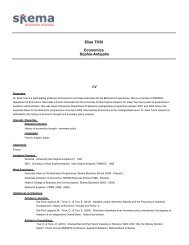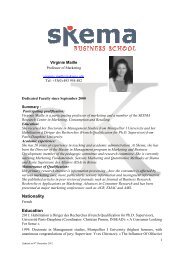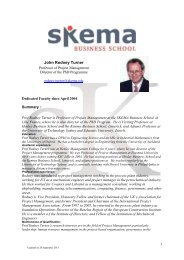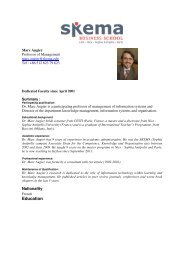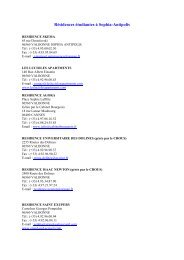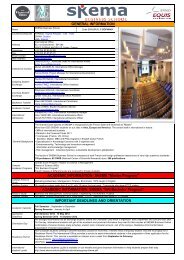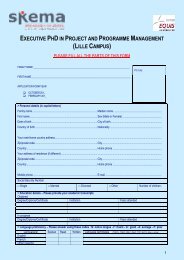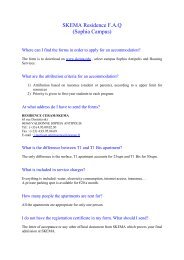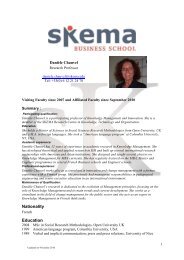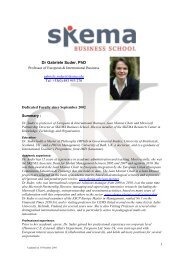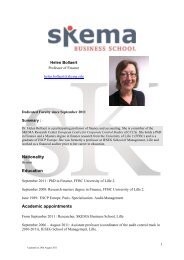ST TUD DY G GUID DE - Skema Business School
ST TUD DY G GUID DE - Skema Business School
ST TUD DY G GUID DE - Skema Business School
You also want an ePaper? Increase the reach of your titles
YUMPU automatically turns print PDFs into web optimized ePapers that Google loves.
Financial mathematics<br />
15 hours – 2 credits<br />
Financial mathematic numerous applications have become vital to the day to day functioning of the<br />
world's financial institutions. As a consequence, a solid command of the principles and techniques of<br />
quantitative finance is essential for a responsible approach to the trading, asset management, and<br />
risk control of complicated financial positions. The class is designed to ensure that the mathematic<br />
building blocks for finance are mastered by the students.<br />
Banking relations<br />
30 hours – 4 credits<br />
This course is designed to understand the relationships between banks and households, banks and<br />
firms, banks and markets, banks and supervisors. The student is expected to understand :<br />
‐why banks exist and how indirect financing (banks) differs from direct financing (markets);<br />
‐how banks and markets are complementary rather than perfect substitutes;<br />
‐the structure of bank loan contracts;<br />
‐the risky nature of the bank deposit contract;<br />
‐how to price fair loan risk premiums;<br />
‐why banks take risky position;<br />
‐how to regulate the banking system<br />
Corporate risk management<br />
30 hours – 4 credits<br />
This course focuses on how corporations manage various financial risks. It provides a basic overview<br />
of options and futures and then goes on to assess the financial risks facing large multinational<br />
corporations such as foreign exchange risk and interest rate risk. It then discusses the hedging<br />
instruments available and their suitability in relation to the risks identified.<br />
Intangible asset valuation<br />
15 hours – 2 credits<br />
This course is designed to recognise the importance of intangibles in today’s changing economies.<br />
The development of modern performance measures in organisations such as the balanced scorecard<br />
is an example of an attempt to measure intangible assets which carry as much importance as<br />
tangibles.<br />
The question of the difficulties faced in putting values on these intangibles will be the cornerstone of<br />
the delivery of the elective.<br />
4



